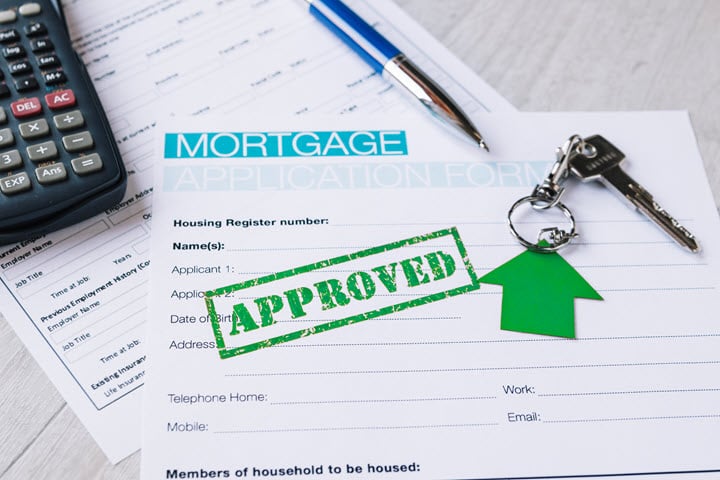5 Must-Perform Steps Before Buying A Home You Need To Know
Buying a home is one of your most important and complex financial decisions. Taking the right steps before committing to such an investment is essential, as it can have lasting repercussions for years. So, you want to research beforehand and follow all the vital steps. But it’s not always easy knowing just what to do first.

Buying A Home Can Feel Scary – It Doesn’t Need To!
Let’s face it. It can cause lots of stress and make buying a new home scary. But it doesn’t need to, especially if you prepare and follow the correct steps.
If you’re considering buying a home, here are five must-perform steps you should take beforehand:
- Understanding your credit score.
- Calculating what you can afford.
- Getting pre-approved for a mortgage loan.
- Researching neighborhoods and properties.
- Finding the right real estate agent.
Doing these things will help ensure that you get into a house that fits your budget and lifestyle needs.

Understanding Your Credit Score
Purchasing a home is an enormous financial responsibility and one of your most important decisions. Prospective homeowners need to understand their credit score, as it will be a factor when determining loan approval and interest rates. Knowing your credit situation before purchasing a home can save you money in the long run.
A higher credit score could mean better loan conditions, such as a lower interest rate, overall savings, and shorter loan terms. In contrast, a low credit score can financially handicap you while purchasing a house and may prevent companies from even approving your request. Therefore, stay informed about your credit information to empower yourself with the best financial options available.

Calculating What You Can Afford
Before buying a home, you must consider how much you can afford. Accurately estimating your budget allows you to avoid making mistakes with long-term financial ramifications. When calculating the amount of money, you can afford for a home purchase; it is necessary to evaluate income, debt, and other expenses in addition to the down payment and closing costs associated with purchasing a home.
Ideally, it would help if you aimed to spend no more than 36 percent of your gross income on housing-related expenses. Doing so will ensure you have enough money left over for other life commitments and activities such as retirement or vacations. Taking the time upfront to calculate what you can afford is a crucial step toward success as a homeowner.

Preparing Your Pre-Approval For A Mortgage Loan
One of the most critical steps in buying a home is getting pre-approved for a mortgage loan. A lender or bank assesses an applicant’s financial security, credit score, and overall risk level to determine if they are eligible for approval. Pre-approval offers several benefits; it helps potential buyers understand what size loan and price range they can comfortably afford, making the process much more efficient than simply starting to shop for a house.
With a pre-approved loan figure in mind, homeowners-to-be have more time to research prices that fall within their budget and make educated decisions about their future purchases. Furthermore, since the approval process is already taken care of in advance, real estate agents and sellers are more likely to accept pre-approved buyers’ offers seriously. Therefore, taking some time upfront to get pre-approved can save significant time and money when looking for the perfect home.

Researching Neighborhoods And Properties
The purchase of a home is one of the most significant financial commitments you will make in your lifetime. While it’s typically a thrilling endeavor, you should never overlook the potential for costly errors. Before committing to a certain property, take some time to do a thorough reverse address lookup and research the property’s neighborhood and surrounding area.
While sizing up amenities and desirability are essential parts of this process, you should consider these factors: zoning ordinances, infrastructure updates, crime rates, and school ratings. And with efficient due diligence measures. Evaluating these details before closing will help ensure you’re making an informed decision and can result in peace of mind for years to come.

Finding the Right Real Estate Agent When Buying A Home
When buying a home, enlisting the help of the right real estate agent can prove invaluable. However, it would help if you took careful consideration to ensure that the agent chosen is an experienced, knowledgeable, and trustworthy professional.
A reliable real estate agent will have extensive knowledge of the local area’s housing market, including current trends and recent sales data. Additionally, they can provide direction on any essential legal requirements for home purchases in the area. Lastly, a strong relationship between buyer and agent is paramount to achieving satisfactory results during negotiations.
Finding someone who meets your criteria and has experience working with buyers like yourself. Researching and considering all of these components will help you find an ideal agent to guide your purchase journey.

The Bottom Line When Buying A Home
Buying a home is an exciting and complex process. However, with the right preparation, knowledge, and diligence, you can ensure a successful purchase that will provide you and your family with years of joy.
Taking the time upfront to evaluate various factors such as affordability, neighborhood research, pre-approval for loans, and finding the right real estate agent will ensure you find the perfect property in your ideal location. Then, with planning and patience, finding your dream home will be a rewarding experience.

Tips For Modern Boho Living Room Ideas We Love
Now, you can brighten your space with hints of playful designs and pops of color with these modern Boho living room ideas. If you ever consider redesigning your living room to provide an elegant and soft look, you should certainly consider modern boho.






